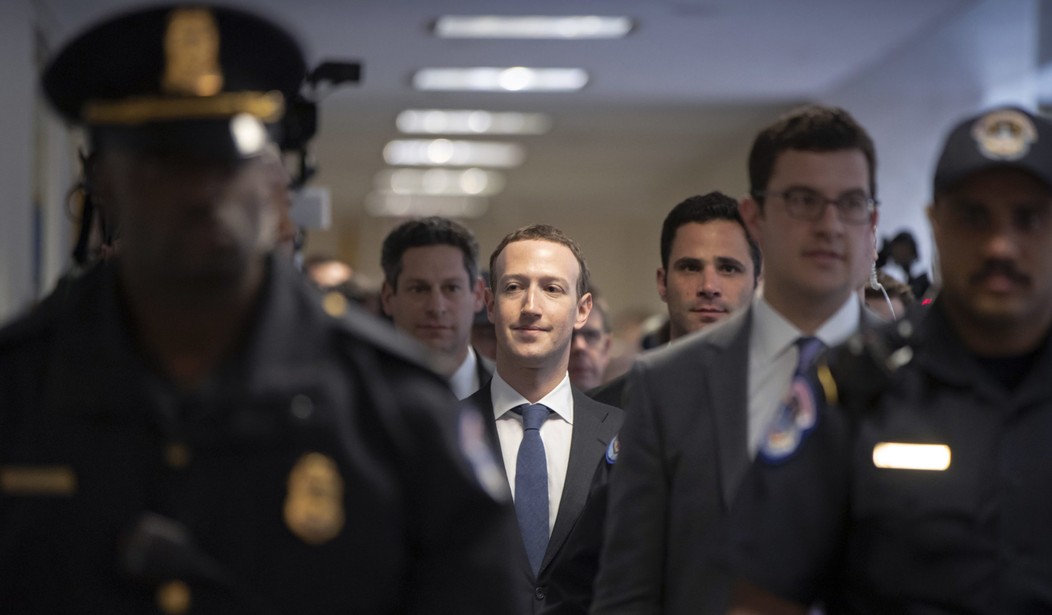Missouri Sen. Josh Hawley met with Facebook CEO Mark Zuckerberg on Thursday in a closed-door meeting to discuss, among other issues, alleged anti-conservative bias at the social media platform. According to the Republican senator, Zuckerberg admitted that bias played a role in the decision to limit the reach of content from pro-life group Live Action and its founder, Lila Rose.
Last week Hawley and several other GOP senators, including Ted Cruz, sent a letter to Zuckerberg, blasting the company’s decision to limit the reach of Facebook posts from Live Action after the company’s “independent fact check” concluded that the organization had posted inaccurate claims in late August. In their letter, the GOP senators said the fact check had been “conducted by abortion rights activists who no reasonable person could consider neutral or objective on the issue of abortion.”
At issue was a claim by Rose that abortion “is never medically necessary,” which a group called Health Feedback said was “inaccurate” and “misleading.”
Live Action shared a screenshot of a message the group received from Facebook shortly after the fact check: “Your Page has reduced distribution and other restrictions because of repeated sharing of false news. People will also be able to see if a Page has a history of sharing false news.”
After the GOP senators complained to Facebook — and perhaps as a result of the letter –the company removed the fact check from the accounts of Rose and Live Action. In a statement to National Review, Facebook explained:
Posts by Live Action and Lila Rose were fact-checked by a third party, independently certified by the International Fact Checking Network. We have been in touch with the IFCN which has opened an investigation to determine whether the fact checkers who rated this content did so by following procedures designed to ensure impartiality. While the IFCN investigates, we are removing the relevant fact checks and have communicated this to the members of the US Senate who brought this specific concern to our attention.
On Thursday, Zuckerberg and Hawley met in the senator’s office to discuss alleged Facebook bias. The meeting was part of a three-day whirlwind tour by Zuckerberg to meet privately with senators on both sides of the aisle and with President Trump. On Wednesday the Facebook CEO met with Democratic Sen. Richard Blumenthal. Zuckerberg spent Thursday meeting with Trump and Sens. Tom Cotton and Mike Lee, in addition to Hawley. On Friday, the CEO is scheduled to meet with House Republican Leader Kevin McCarthy and Rep. Doug Collins, the ranking Republican on the Judiciary Committee, along with several high-ranking House Democrats.
Hawley told reporters after the meeting that Zuckerberg admitted “they made a mistake, that there was clearly bias. Those were his words…that they were wrong to have censored Live Action.”
Hawley tweeted Thursday afternoon that Zuckerberg admitted that bias is “an issue [Facebook has] struggled with for a long time.” Zuckerberg has thus far refrained from commenting on the meetings.
Hawley, who characterized the discussion as “frank,” said he challenged Zuckerberg to prove he was serious about addressing Facebook bias by doing two things: 1) selling WhatsApp and Instagram, and 2) submitting the company to an “independent third-party audit on censorship.”
Zuckerberg “said no to both,” according to Hawley, who admitted to reporters that he had been unable to extract any commitments from the Facebook CEO.
Conservatives and progressives alike have called for investigations into whether Facebook and Google have been engaging in antitrust activities, although I’ve yet to hear anyone on either side explain how slapping the Big Tech companies with antitrust violations would solve the problem of bias and censorship. However, if Zuckerberg wants to stave off the Federal Trade Commission, he perhaps ought to seriously consider Hawley’s suggestion to unload part of his company’s digital footprint — if the thinks he would be on the losing end of such a battle, that is. It’s hard to say how an antitrust investigation would play out, but the fact that there is bipartisan support for such an effort suggests that Zuckerberg might come out the loser. Spinning off WhatsApp and Instagram wouldn’t do anything to solve the bias problem, but it could be a good PR move for Zuckerberg and may serve to quiet some of his critics.
As to Hawley’s request for an independent third-party audit — that is not going to happen. At least not a serious audit. Opening up the books and the algorithms would expose all of Facebook’s trade secrets. There is no conceivable scenario under which Facebook would agree to that. They may at some point agree to some sort of audit, but any such effort would be a surface-only dog-and-pony show crafted to quiet the masses, and, again, would do nothing to fix the bias problem.
Having said all that, I applaud Hawley and other senators for making an effort to reach out to Zuckerberg for a private conversation — and I applaud Zuckerberg for accepting the invitations. While there has been a lot of public posturing on both sides over issues related to Big Tech, it’s these behind-the-scenes conversations and negotiations that could be the catalyst for institutional changes that could keep the internet free without dragging the feds into it.










Join the conversation as a VIP Member